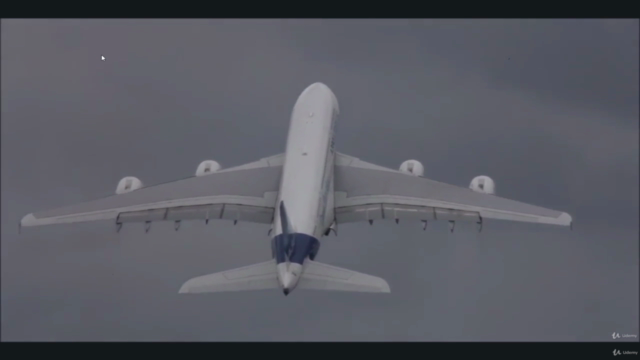Aerospace Engineering: Aircraft Systems and Avionics

Why take this course?
🚀 Aerospace and Aeronautical Engineering: Master the Systems of Airplanes 🛫
Welcome aboard the Aerospace Engineering: Aircraft Systems and Avionics Course – your comprehensive guide to the intricate systems that power, navigate, and pilot aircraft through our skies! Embark on a deep dive into the multidisciplinary realm of aerospace engineering with a focus on the critical systems that make up modern airplanes.
Course Overview 📚✨
This course is meticulously designed to provide you with an in-depth understanding of the key components and functions within aircraft systems, including:
✔️ Introduction: Setting the stage for your journey into Aircraft Systems Engineering.
- Flight Instruments: Understanding the essential tools that pilots use to navigate our skies safely.
- Electrical System: Exploring the power that keeps an airplane running, from generators to wiring.
- Pneumatic System: Delving into the system responsible for braking and air conditioning on board.
- Hydraulic System: Discovering how this critical component controls surfaces like flaps and landing gear.
- Avionics: Investigating the sophisticated systems that guide aircraft through complex navigation, communication, and control operations.
- Cockpit: A detailed look at the pilot's workspace and the instruments that are indispensable to flight.
What You Will Learn 🧭
Throughout this course, you will uncover:
- The role and importance of flight instruments in civil aircraft.
- How generators on board produce electricity and the types of electrical systems used in aviation.
- The key differences between pneumatic and hydraulic systems and their applications on an airplane.
- The complexities of Avionics: from flight management computers to GPS and autopilot systems.
- The critical components within the cockpit, including the main instruments and their role in various flight conditions.
Objectives 🎯
Your goal is to gain a profound understanding of why aircraft require these specific systems to operate under normal conditions. You'll learn:
- The significance of the hydraulic system in moving control surfaces and deploying landing gear.
- How cockpit instruments provide pilots with critical flight data.
- The importance of Avionics in modern aviation for communication, navigation, and controlling the aircraft.
Prerequisites 🧠
For an optimal learning experience, it is highly recommended that you have prior knowledge from our course on Aerospace Engineering: Aircraft Fundamentals and Advanced. This will ensure a clearer grasp of the concepts and terminologies used in this course.
Join the Aerospace Journey 🌟
Are you ready to embark on this exciting journey into the world of Aerospace Engineering? Let this course be your guide as you delve into the complexities and wonders of aircraft systems and avionics. Remember, I'm here to assist you every step of the way – reach out with any questions, and I'll provide prompt and comprehensive answers to keep you soaring through your learning experience.
Enroll now and take the first step towards mastering the systems that make flight possible! ✈️💫
Course Gallery




Loading charts...
Comidoc Review
Our Verdict
This aerospace engineering course on Udemy offers valuable insights into various aircraft systems, including avionics, hydraulics, electric, and propulsion. With clear explanations and informative slides, it provides an accessible introduction to the subject matter for beginners. However, there is room for improvement in terms of consistency in volume levels, factual accuracy, and integration of quizzes to test understanding. Overall, it's a worthy option if you are looking for foundational knowledge in aerospace engineering.
What We Liked
- Comprehensive overview of aircraft systems and their physics
- Knowledgeable instructor with clear explanations
- Good mix of slides, animations, and videos
- Covers a broad range of topics in aerospace engineering
Potential Drawbacks
- Inconsistent volume levels in some modules
- Occasional factual errors, particularly with pitot-static tubes
- Lacks quizzes or assessments to test understanding
- Presentation style could be more engaging and varied